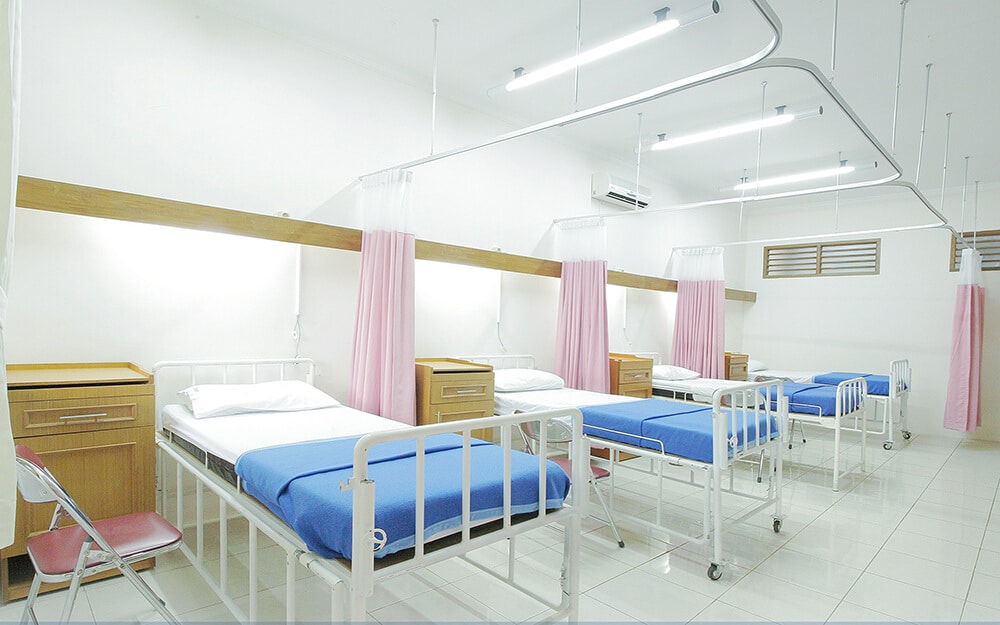When you’re really sick, you count on a hospital to treat you so that you can heal and recover from your illness. But when you get an infection because of the hospital’s negligence, it can make it harder to feel like you’re in good hands and going to get better quickly. You might think that hospitals are extremely clean and completely disinfected spaces, but that’s not always the case.
In fact, infections can spread faster in hospitals since many patients already have compromised health. Even though hospitals are considered clean places, there are still plenty of surfaces and nooks within the buildings that are ideal for growing bacteria. On top of that, healthcare professionals are constantly on the move and working with different people, making it easy to carry germs from person to person.
After an infection caused by hospital negligence, you’ll need representation to help you stand up for your rights. A Philadelphia medical malpractice lawyer from Shrager, Sachs, & Blanco will fight for you against the hospital who could have prevented your infection. So that you’re informed about what caused your illness, let’s take a look at the negligent actions that can cause hospital-acquired infections.
Negligence That Can Cause Infections
Hospital employees don’t do things to intentionally get you sick, but sometimes they can act negligently and infect you as a result. Not only are nurses and doctors overworked, but they are also usually understaffed, which creates more opportunity for mistakes to be made since they are expected to do more than they can handle. Here are some mistakes that healthcare professionals make that may cause you to contract a hospital-acquired infection:
- Improper hygiene
- Surgical errors
- Patient neglect
- Misdiagnosis
- Miscommunication
- Fatigue
- Premature discharge of the patient
For example, if a nurse is treating a patient with C. diff and does not wash her hands before coming to treat you, then you could contract the infection from her negligence. Let’s take a look at some of the most common infections you could get from being in the hospital.
Hospital-Acquired Infections
Hospitals are known to be hot spots where germs spread easily between vulnerable patients, which is why there are illnesses called hospital-acquired infections. The Centers for Disease Control and Prevention (CDC) reports that more than 680,000 people contract an infection from a hospital each year. About 75,000 of those people die from the infections they develop.
According to the CDC, there are four main types of hospital-acquired infections: central line-associated bloodstream infections, surgical site infections, catheter-associated urinary tract infections, and ventilator-associated pneumonia. More specifically, MRSA and C. diff are two infections that quickly become dangerous to patients.
MRSA is a staph infection that is resistant to some antibiotics and can spread through tubes and surgical sites, which can become deadly if it reaches the patient’s heart. The CDC estimates that there are 70,000 severe infections and 9,000 deaths each year as a result of MRSA.
C. diff is another dangerous infection that is common in hospitals and is a result of bacteria getting into the intestines and causing diarrhea and inflammation, usually after taking an antibiotic. The problem with C. diff is that even if a patient does not present symptoms, they can be colonized with the infection and inactive spores of C. diff can be transferred by touch between people. Those spores become active once they reach the intestines. The CDC reports that nearly 290,000 patients get C. diff each year. One in five will get the infection again if they’ve had it once, and nearly 10% of the infected die.
One of the most common ways that patients suffer from infection-related complications due to hospital negligence is when a patient starts to show signs of an infection and the hospital staff do not diagnose the symptoms in time. When an infection isn’t diagnosed in a timely manner, it can quickly lead to the patient suffering from further complications– especially with patients with a compromised immune system or with other illnesses and/or conditions.
Shrager, Sachs, & Blanco Will Advocate for You
If you’ve experienced negligence at a hospital in Philadelphia that led to an injury or illness, you’re probably frustrated and want to hold the hospital and doctors accountable for their negligent actions. At Shrager, Sachs, & Blanco, we have experience representing victims of medical malpractice, so we can help you and your family move forward by getting you the compensation you deserve.
If you think you have a medical malpractice case, contact us today so that we can discuss your potential claim and how we can help you recover.









